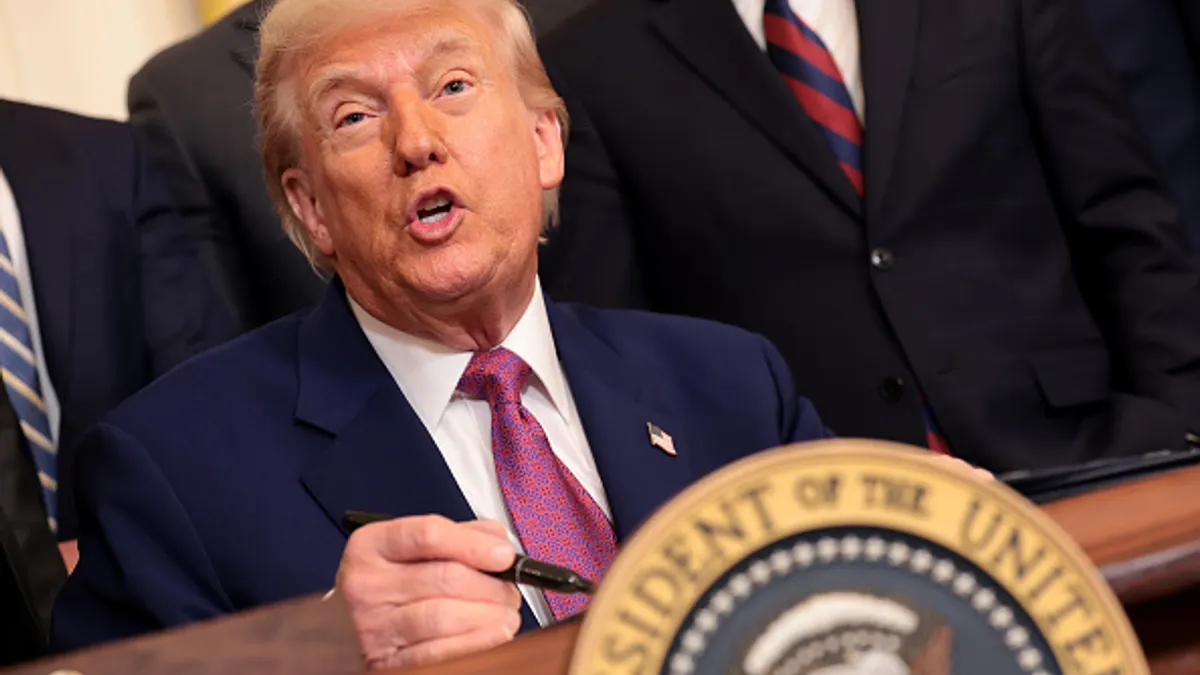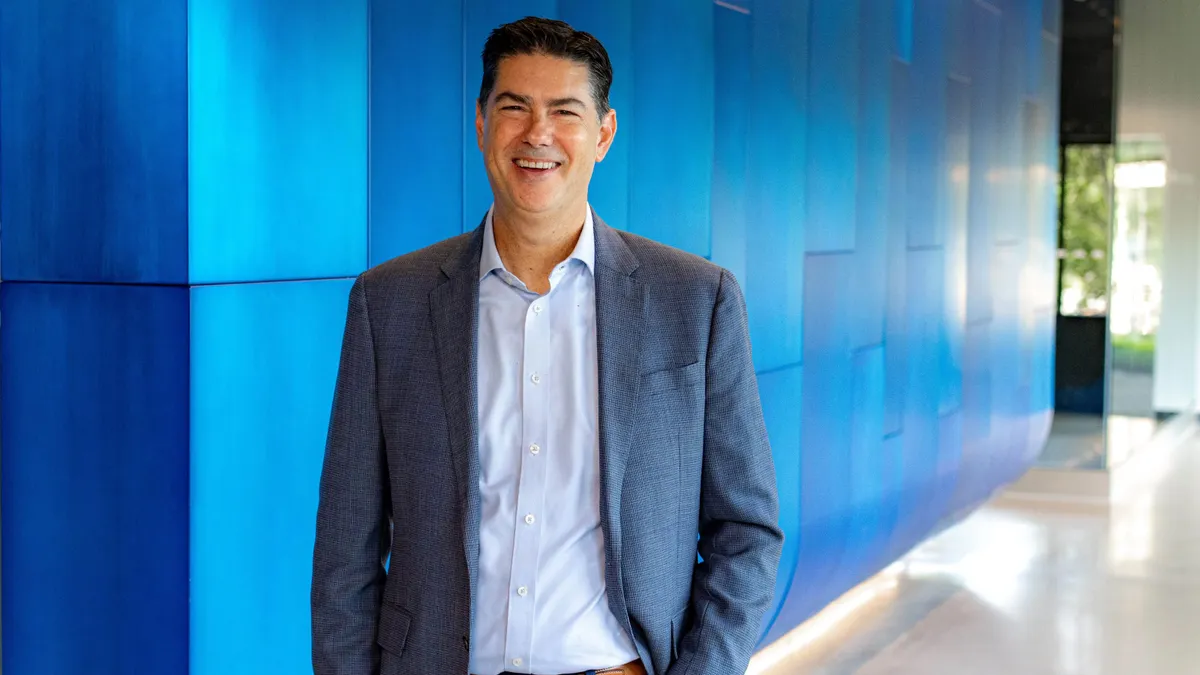The Trump administration acted on its stated policy goal of providing job training and apprenticeship opportunities Thursday, asking top U.S. organizations to cosign a "Pledge to America's Workers."
At a White House event, President Donald Trump joined representatives of several large employers — including FedEx, IBM, Walmart and others — as well as those of major trades associations in announcing the pledge, later accompanied by an executive order that fleshed out next steps on the job training issue.
"I'm proud to announce an exciting new challenge and the beginning of a new national movement," Trump said at the event. "In the days and months ahead, we hope that hundreds of companies and organizations will join us in this effort."
Trump announces two new entities
Trump's executive order created two entities: the President's National Council for the American Worker and the American Workforce Policy Advisory Board.
The council will consist of 10 federal officials serving leadership roles at executive departments, including the secretaries of the U.S. Departments of Commerce, Education (ED) and Labor (DOL). The council will, among other things, give recommendations toward developing "a national strategy for empowering American workers."
The advisory board, on the other hand, will be composed of the secretary of commerce and an advisor to the president, in addition to 25 other members appointed by Trump. The order said those members will represent a variety of perspectives, including private employers, educational institutions and representatives from the states. The board will serve in an advisory role to the council.
"Together, their task will be to develop a national workforce and strategy to equip Americans of all ages and at all stages of their career with the skills they need to thrive in the modern economy," Trump said of the two entities at the event.
Trump's executive order also is one of the first major actions taken on the issue of job training since the White House announced a proposal in June to potentially merge two cabinet-level agencies — DOL and ED — reportedly in order to consolidate the federal government and refocus on both agencies' roles in the workforce training discussion.
Experts: A long road still ahead for the US
Johnny C. Taylor, president and CEO of the Society for Human Resources Management, joined Trump at the event and said the organization would work to create "127,000 new opportunities" as part of the initiative. In a blog post Thursday, Taylor said Trump's proposal to merge DOL and ED "could contain solutions" for solving skills shortages, but he said that more work needs to be done by all stakeholders.
"Basically, America's workforces are not prepared to do the jobs of tomorrow, or even today," Taylor said.
The executive order may be a step in the right direction, Michael Lotito, co-chair of the Workplace Policy Institute at Littler Mendelson, said in an interview with HR Dive, but there's a still a lot of work to be done by both employers and legislators to prepare for coming shifts in the labor market.
"We need to provide individuals a path to the next job or opportunity," Lotito said, adding that employers should avoid thinking of re-training as a business expense to be avoided. "We're going to need a totally different approach."
The administration's new initiative will likely have the focus needed to tackle the issue of worker displacement due to automation and advanced technologies, Lotito said, but he emphasized that a larger challenge will be for stakeholders to address those industries immediately at risk of displacement, such as the food and retail industries. These industries serve as points of entry into the workforce for many, he said, meaning it may soon be difficult for new generations to learn even basic skills.
Experts who spoke with HR Dive said they believe successful job training efforts also will require a restructuring of how all sides approach education. "There should be significant increases in the investment of corporations in the area of learning and development and a requirement for every single employee to invest daily in ongoing learning and skill development," Heide Abelli, senior vice president of corporate learning at Skillsoft, wrote in an email to HR Dive. "The return on that investment is enormous."
At the same time, workers will need to show a willingness to invest in themselves. "There's definitely a mutuality here," Lotito said.























